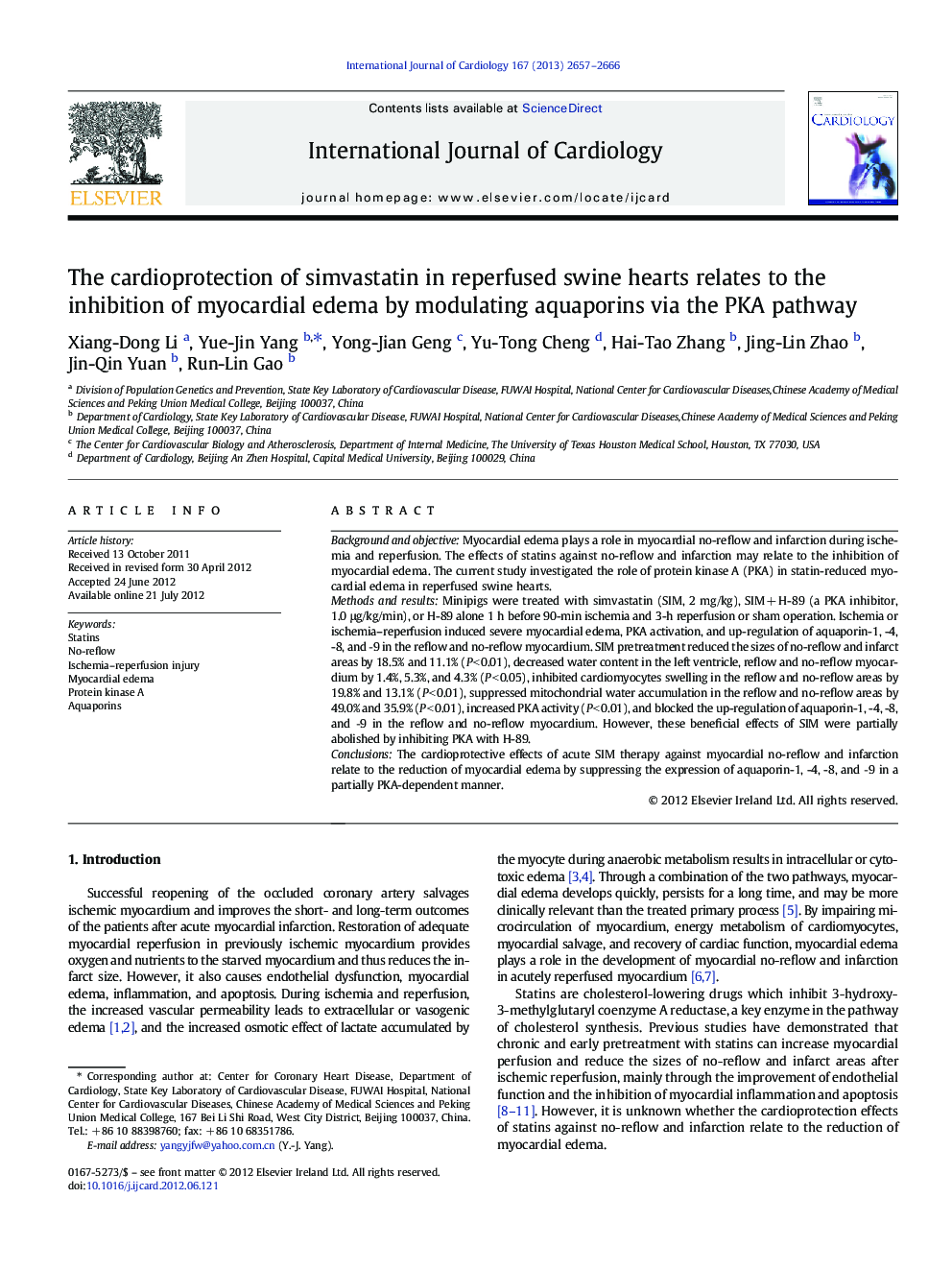| Article ID | Journal | Published Year | Pages | File Type |
|---|---|---|---|---|
| 5974494 | International Journal of Cardiology | 2013 | 10 Pages |
Background and objectiveMyocardial edema plays a role in myocardial no-reflow and infarction during ischemia and reperfusion. The effects of statins against no-reflow and infarction may relate to the inhibition of myocardial edema. The current study investigated the role of protein kinase A (PKA) in statin-reduced myocardial edema in reperfused swine hearts.Methods and resultsMinipigs were treated with simvastatin (SIM, 2 mg/kg), SIM + H-89 (a PKA inhibitor, 1.0 μg/kg/min), or H-89 alone 1 h before 90-min ischemia and 3-h reperfusion or sham operation. Ischemia or ischemia-reperfusion induced severe myocardial edema, PKA activation, and up-regulation of aquaporin-1, -4, -8, and â9 in the reflow and no-reflow myocardium. SIM pretreatment reduced the sizes of no-reflow and infarct areas by 18.5% and 11.1% (P < 0.01), decreased water content in the left ventricle, reflow and no-reflow myocardium by 1.4%, 5.3%, and 4.3% (P < 0.05), inhibited cardiomyocytes swelling in the reflow and no-reflow areas by 19.8% and 13.1% (P < 0.01), suppressed mitochondrial water accumulation in the reflow and no-reflow areas by 49.0% and 35.9% (P < 0.01), increased PKA activity (P < 0.01), and blocked the up-regulation of aquaporin-1, -4, -8, and â9 in the reflow and no-reflow myocardium. However, these beneficial effects of SIM were partially abolished by inhibiting PKA with H-89.ConclusionsThe cardioprotective effects of acute SIM therapy against myocardial no-reflow and infarction relate to the reduction of myocardial edema by suppressing the expression of aquaporin-1, -4, -8, and â9 in a partially PKA-dependent manner.
